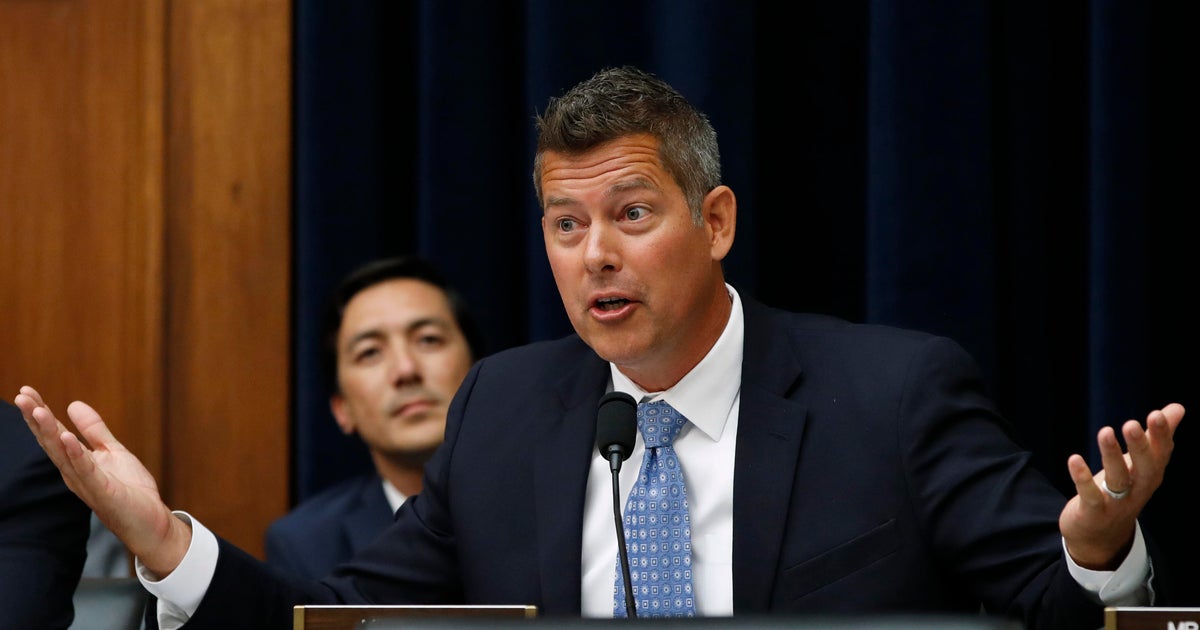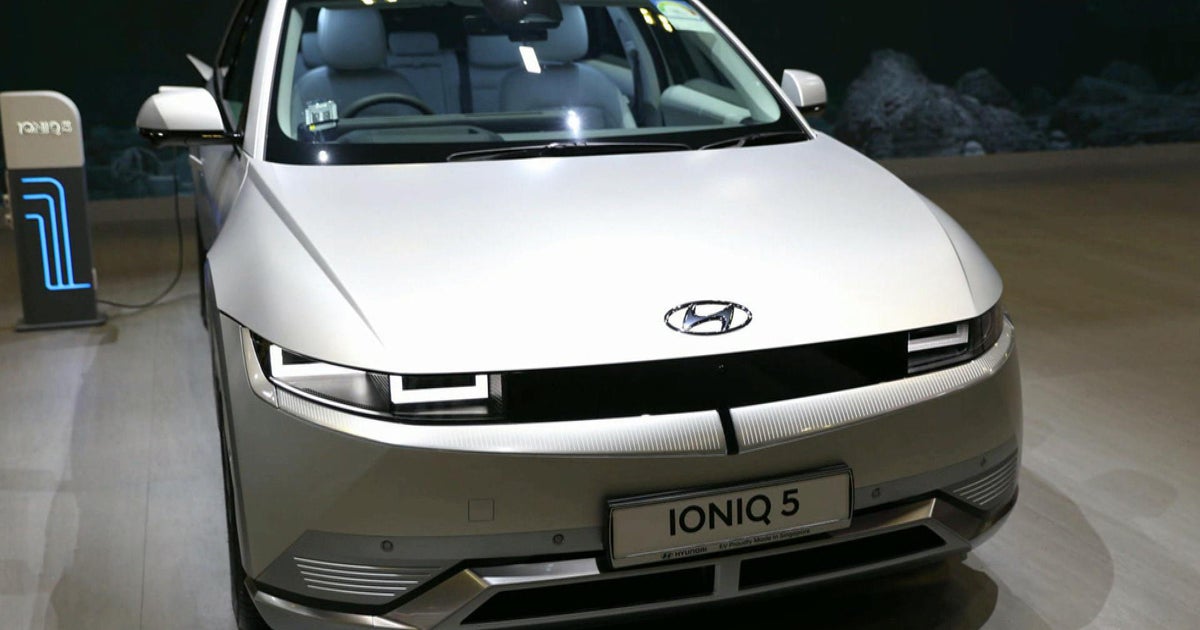CBS News
How China came to dominate the electric vehicle market, and what the U.S. can do to catch up

The U.S. blinked, and China built an electric vehicle empire.
“They’re taking over the world, except North America,” said Lei Xing, a Chinese auto industry expert. “The U.S. will be the last frontier.”
In the last 15 years, China has rolled out a public charging network over 10 million strong, convinced billions of drivers to go electric by dangling subsidies and other incentives, and introduced over 100 EV brands with a bevy of pricing options. The push exemplifies “China Speed,” a term Xing used to describe the country’s hypersonic development.
The speed and scale of the shift has slingshotted China past the U.S. and every other nation in the transition to electric vehicles, while also positioning Chinese automakers near the front of the pack to dominate the market for years to come. In both July and August of 2024, for example, industry data shows that over half of total automotive sales in China were electric or hybrid.
The U.S., quite simply, is playing catch-up. The Biden administration has made the transition to EVs a key priority, saying that by 2030 it wants half of all vehicles sold to be electric, plug-in hybrid or fuel cell EVs. The White House has also sought to throw sand in China’s gears by imposing stiff tariffs on Chinese-made EVs, a measure aimed at protecting U.S. automakers.
But with limited supply-chain access, lagging EV infrastructure development and a culture in which American motorists remain partial to gas-powered cars, the jury is still out on whether these goals are attainable. John Bozzella, CEO of the Alliance for Automotive Innovation, a trade group representing U.S. and foreign automakers along with other industry players, has characterized the Biden administration’s goals as the “ragged edge of achievable.”
The skeptics may have a point: EV adoption, and the nation’s buildout of the required energy infrastructure, has been glacial compared to China. According to the Federal Highway Administration, as of August 29, 192,500 public chargers were in place across the U.S. — a number that doubled under the Biden-Harris administration — with 1,000 new ones activated each week. Biden has committed to building 500,000 charging stations nationwide by 2030.
To reach that goal, his administration has thrown $7.5 billion in funding behind electric charging infrastructure. Of that amount, $5 billion is being funneled toward expanding a fast-charging network along highways. So far, only some 69 of those fast chargers are operational across eight states, according to the Highway Administration.
The slow infrastructure buildout has bogged down adoption, as drivers contend with “range anxiety.” As of June, battery electric vehicles and plug-ins represented less than 10% of car sales in the U.S., according to federal data.
“China has a head-start in a race that is still at the starting line,” said Baratunde Cola, CEO and founder of Carbice, a maker of so-called nanotubes whose products help keep electric cars from overheating. “Everybody’s still setting up race blocks.”
How China came to dominate the EV market
China’s lead in electric cars hasn’t happened overnight. The key driver: China’s recognition more than a decade ago that EVs represented the most important transportation innovation since Henry Ford revolutionized auto manufacturing in the early 20th century.
Determined to race ahead, Beijing threw its economic might behind EV development, similar to the centrally controlled industrial policy that powered the rise of Japan’s auto sector in the 1970s and ’80s.
In 2009, the Chinese government launched a pilot subsidy program to lay the groundwork for an electric vehicle network. Dubbed “Ten Cities and Thousand Vehicle,” the program’s goal was to subsidize new electric and hybrid vehicles in the public transport sector like buses and taxis, Xing said.
Starting in 2013, subsidies were made available to individual consumers through a tiered system based on an electric vehicle’s range, Xing said. The government halted the subsidies in 2022 but by that point, China was already well on its way to EV dominance. The country also offered an exemption from the 10% sales tax to defray car costs, which is slated to phase out in 2027.
In total, the Chinese government doled out $231 billion in subsidies from 2009 to 2023 according to a report from the Center for Strategic and International Studies.
This “carrot” approach to drive consumption proved highly effective. According to the International Energy Agency, new electric car registrations in China reached 8.1 million in 2023, a 35% increase from 2022.
China has also gotten ahead by building a vast network of chargers. According to the National Energy Administration, as of June China had 10.2 million EV chargers, up 54% from the previous year.
China has upstaged the U.S. not just in terms of quantity, but also in terms of quality. Part of this, Xing said, has to do with the country’s streamlined charging system, which offers one standard plug for all vehicles.
“You don’t have to think about the type of plugs or adapters and which type of charging stations to use,” he said.
Another advantage China has over the U.S. is its access to critical raw materials. The International Energy Agency estimates that 90% of graphite and 77% of refined rare earths — key inputs in EV and battery production— will come from China by 2030. The U.S. currently imports 100% of its graphite, with one-third of that supply sourced from China, according to the Alliance for Automotive Innovation.
Proximity to semiconductor chip manufacturing also gives China an edge, Hooman Shahidi, CEO and co-founder of EVPassport, told CBS MoneyWatch. Taiwan, right in China’s backyard, produces around 90% of the world’s most advanced chips, according to the United States Institute for Peace.
“The U.S. and Canada are basically trying to cut off the dependency on China, but it’s easier said than done,” said Xing. ” I think that’ll take at least a decade.”
Can the U.S. still catch up?
U.S. drivers have been much slower to hop on the EV train.
“We have a lot more laggards, versus early adopters,” said Shahidi, who also serves as an adviser to the Biden administration on EV charging infrastructure policy.
Still, experts say it’s too soon to count America out, which has the means and the technical expertise — if not always the political will — to quickly ramp up its electric transportation systems. The next few years will be the “most critical” period for domestic EV development, said Bozzella in a blog post for the Alliance for Automotive Innovation.
The Biden administration in March lowered its goal for EV sales to half the market by 2030. This “should give the market and supply chains a chance to catch up and further bypass China,” Bozzella wrote.
Washington has set a “great tempo” so far setting mandates and incentives to achieve these goals, Shahidi added. But he believes more can be done to reward companies focused on the supply train and logistics side, something China has done with flying colors.
“We need to incentivize and reward the ancillary economy tied to electrification,” Shahidi said.
For the U.S. to get a leg up, Cola, who runs Carbice, said the U.S. needs to make more investments in robotics and automating assembly, invest in advanced materials and shore up production of critical mineral supply to reduce reliance on China.
“If we were to focus efforts on scaling up new technologies, like carbon nanotubes, if we were to double down on robotics, we could catch up with China and be the world leader in a decade,” he said.
Another focal point for the U.S. will be building charging infrastructure. “In order for us to deploy more chargers, we need more people doing deployment,” Shahidi said.
As federal and local initiatives seek to fill the gaps in the clean energy workforce, the U.S. is forging ahead. The Federal Highway Administration says federally-funded projects are currently underway for over 24,100 EV chargers. More are on their way.
“We expect to see hundreds of federally-funded chargers operational this year, thousands next year, and hundreds of thousands of chargers by the end of the decade,” a Highway Administration spokesperson said.
CBS News
Taste-testing “Sandwiches of History” – CBS News

Watch CBS News
Be the first to know
Get browser notifications for breaking news, live events, and exclusive reporting.
CBS News
“Sandwiches of History”: Resurrecting sandwich recipes that time forgot

Barry Enderwick is eating his way through history, one sandwich at a time. Every day from his home in San Jose, California, Enderwick posts a cooking video from a recipe that time forgot. From the 1905 British book “Salads, Sandwiches and Savouries,” Enderwick prepared the New York Sandwich.
The recipe called for 24 oysters, minced and mixed with mayonnaise, seasoned with lemon juice and pepper, and spread over buttered day-old French bread.
Rescuing recipes from the dustbin of history doesn’t always lead to culinary success. Sampling his New York Sandwich, Enderwick decried it as “a textural wasteland. No, thank you.” Into the trash bin it went!
But Enderwick’s efforts have yielded his own cookbook, a collection of some of the strangest – and sometimes unexpectedly delicious – historical recipes you’ve never heard of.
Harvard Common Press
He even has a traveling stage show: “Sandwiches of History Live.”
From the condiments to the sliced bread, this former Netflix executive has become something of a sandwich celebrity. “You can put just about anything in-between two slices of bread,” he said. “And it’s portable! In general, a sandwich is pretty easy fare. And so, they just have universal appeal.”
Though the sandwich gets its name famously from the Fourth Earl of Sandwich, the earliest sandwich Enderwick has eaten dates from 200 B.C.E. China, a seared beef sandwich called Rou Jia Mo.
He declared it delicious. “Between the onions, and all those spices and the soy sauce … oh my God! Oh man, this is so good!”
While Elvis was famous for his peanut butter and banana concoction, Enderwick says there’s another celebrity who should be more famous for his sandwich: Gene Kelly, who he says had “the greatest man sandwich in the world, which was basically mashed potatoes on bread. And it was delicious.”
Whether it’s a peanut and sardine sandwich (from “Blondie’s Cook Book” from 1947), or the parmesian radish sandwich (from 1909’s “The Up-To-Date Sandwich Book”), Enderwick tries to get a taste of who we were – good or gross – one recipe at a time.
RECIPE: A sophisticated club sandwich
Blogger Barry Enderwick, of Sandwiches of History, offers “Sunday Morning” viewers a 1958 recipe for a club sandwich that, he says, shouldn’t work, but actually does, really well!
MORE: “Sunday Morning” 2024 “Food Issue” recipe index
Delicious menu suggestions from top chefs, cookbook authors, food writers, restaurateurs, and the editors of Food & Wine magazine.
For more info:
Story produced by Anthony Laudato. Editor: Chad Cardin.
CBS News
The cream of the crop in butter

Watch CBS News
Be the first to know
Get browser notifications for breaking news, live events, and exclusive reporting.








